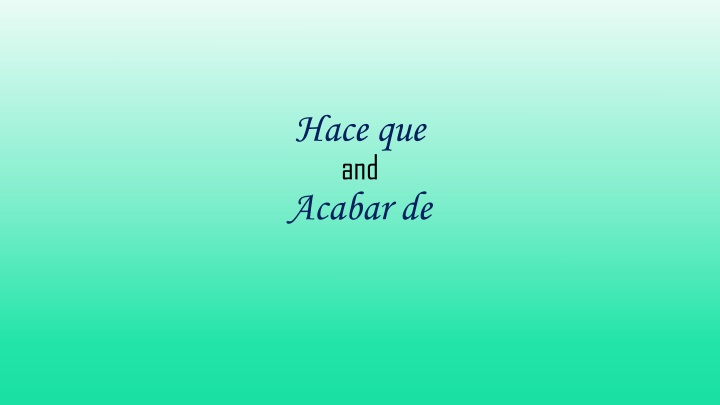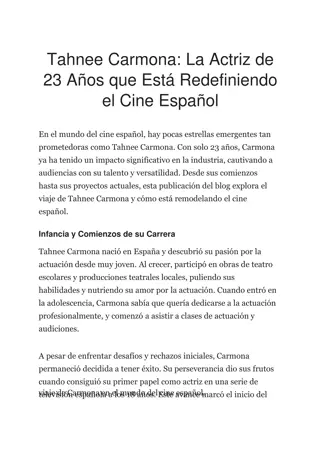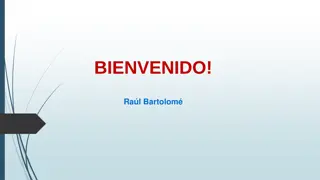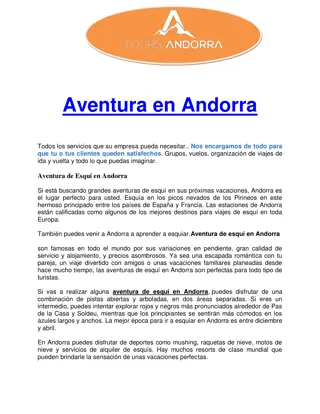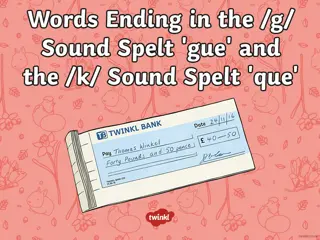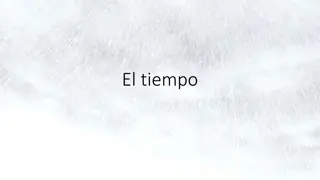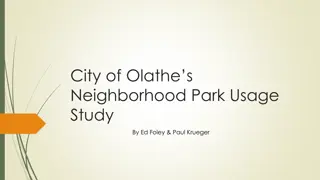Hace Que and Acabar De Usage
Hace que and acabar de are two distinct grammar concepts in Spanish. Hace que is used to express the duration of an action, while acabar de indicates recently completed actions. It's important to differentiate between the two to use them accurately in sentences. Additionally, the preterit tense can also be used with hace que to describe actions that have been completed in the past. Practice these concepts to enhance your grasp of Spanish grammar.
Uploaded on Feb 19, 2025 | 0 Views
Download Presentation

Please find below an Image/Link to download the presentation.
The content on the website is provided AS IS for your information and personal use only. It may not be sold, licensed, or shared on other websites without obtaining consent from the author.If you encounter any issues during the download, it is possible that the publisher has removed the file from their server.
You are allowed to download the files provided on this website for personal or commercial use, subject to the condition that they are used lawfully. All files are the property of their respective owners.
The content on the website is provided AS IS for your information and personal use only. It may not be sold, licensed, or shared on other websites without obtaining consent from the author.
E N D
Presentation Transcript
Hace que and Acabar de
The first thing you should know is that hace que and acabar de have nothing to do with each other. They re just grammar bits that don t deserve to have a separate presentation each.
You understand that hace que means literally it makes that But its used idiomatically. Hace dos meses que vivo en Barnesville. = I have been living in Barnesville for two months. Hace mucho tiempo que tocas el piano. = You have been playing the piano for a long time. Hace una hora que la chica llora. = The girl has been crying for an hour. You can deduce from the above that hace + time + que + verb means SUBJECT has been DOING SOMETHING for X AMOUNT OF TIME. Hace + time + que + verb Hace una hora que la chica llora. Literally, it makes an hour that the girl is crying. But, in good English, The girl has been crying for an hour.
Besides saying something like I have been living here for three years, We can say, I HAD been living there for three years (when I finally bought a new house). If you think about it, you can figure out how to say it. If Hace tres a os que vivo aqu means I HAVE been living here for 3 years & HAD is the past of HAVE then it makes sense to change the verbs in the Spanish sentence to the past (specifically, imperfect): Hac a tres a os que viv a aqu . = I HAD been living here for 3 years.
Hace una hora que leo. I have been reading for an hour. Hac a una hora que le a -- I had been reading for an hour (when my brother called). (cuando mi hermano me llam ). Hace un a o que estudias espa ol. You have been studying Spanish for a year. Hacia un a o que estudiabas espa ol You had been studying Spanish for a year (cuando conociste a un guapo mexicano). (when you met a good-looking Mexican). But what about the preterit? Can you use it with hace + time + que ? Yes. But the translation is different, because you are no longer talking about something that is or was going on but something that s finished. And you don t put hace in the preterit, just the main verb of the sentence. So Hace una hora que com means I ate an hour ago.
Hace una hora que como. I have been eating for an hour Hac a una hora que com a. I had been eating for an hour. Hace una hora que com . I ate an hour ago. When students write compositions and want to say something happened a year ago, a decade ago, etc., they struggle with how to say ago, because there really isn t a word for it in Spanish. You say it like in the third sentence above, but as native speakers of English, it s probably easier for us to say it this way: Com hace una hora. That means the same thing as above: I ate an hour ago. It has the added benefit (for native speakers of English) of putting the phrase meaning ago after the verb, as we usually do in English, and eliminating the que, which doesn t occur in English.
Acabar de Acabar de is much easier than hace + time + que. Acabo de leer ese libro. I just read that book. Acabamos de ver a tus padres. We just saw your parents. Acaba de comer tu helado. He just ate your ice cream. So you conjugate acabar and then put de and an infinitive to say someone has just done something. OK, tenses again. If you can say, I have just eaten Acabo de comer. You can also say I had just eaten (when my friend arrived). Again, we just use a past tense (imperfect; preterit isn t an option this time): Acababa de comer (cuando mi amigo lleg ).
So hace que and acabar de arent hard, just small things to remember. If you re serious about learning Spanish, it s a good idea to try to work things like this into your compositions. Click here to go to your homework.
